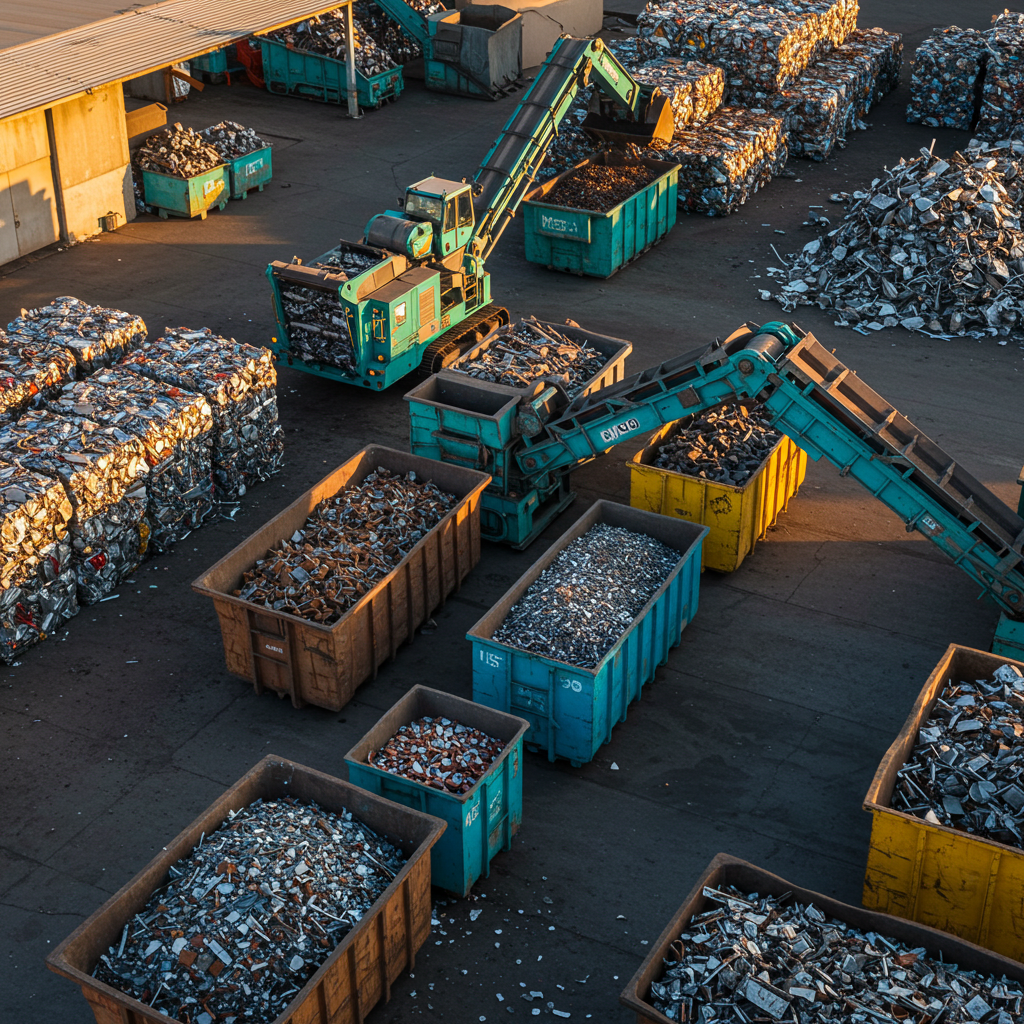1. Ferrous Metals:
- Definition: Ferrous metals contain iron and are generally magnetic. Common examples include steel, cast iron, and wrought iron.
- Recycling Process:
- Collection and Sorting: Ferrous scrap is collected from various sources like construction sites, old appliances, vehicles, and industrial waste. It's then sorted to remove non-ferrous materials and contaminants.
- Shredding: Large pieces of ferrous scrap are shredded into smaller, manageable pieces for easier processing.
- Purification: The shredded scrap is further cleaned to remove any remaining impurities.
- Melting: The clean ferrous scrap is melted in furnaces at high temperatures.
- Refining: The molten metal may undergo further refining to achieve the desired composition and quality.
- Solidification: The molten metal is then cast into various shapes like ingots or billets, ready for manufacturing new products.
2. Non-Ferrous Metals:
- Definition: Non-ferrous metals do not contain iron and are generally not magnetic. They include metals like aluminum, copper, brass, bronze, nickel, and lead.
- Recycling Process:
- Collection and Sorting: Similar to ferrous metals, non-ferrous scrap is collected and sorted based on the type of metal.
- Dismantling: Complex items containing non-ferrous metals are dismantled to separate different metal components.
- Shredding/Baling: Depending on the metal and its form, it may be shredded or baled for easier handling.
- Melting: The sorted non-ferrous scrap is melted in furnaces. The melting temperature varies depending on the specific metal.
- Purification: The molten metal is purified to remove impurities and achieve the desired grade.
- Casting: The purified molten metal is cast into ingots or other forms for reuse in manufacturing.
Benefits of Recycling Ferrous and Non-Ferrous Metals:
- Resource Conservation: Recycling reduces the need for mining and extracting virgin ores, conserving natural resources.
- Energy Efficiency: Recycling metals requires significantly less energy compared to producing metals from raw materials. For example, recycling aluminum uses only about 5% of the energy needed to produce it from bauxite ore.
- Reduced Landfill Waste: Recycling diverts scrap metal from landfills, reducing waste accumulation.
- Economic Benefits: The recycling industry creates jobs and contributes to economic growth. It also reduces reliance on importing raw materials.
- Environmental Protection: Recycling reduces greenhouse gas emissions and pollution associated with mining and metal production.
